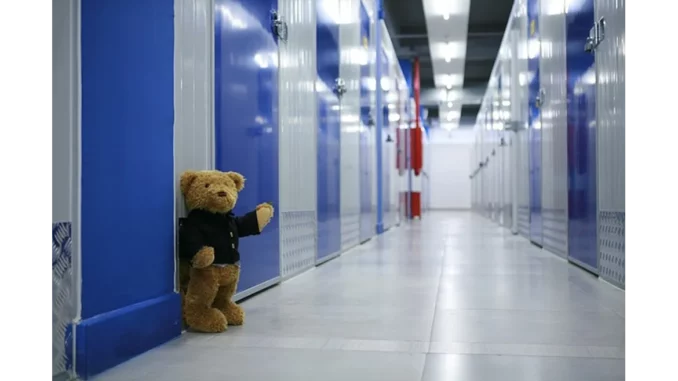
Summary
Self-Storage Industry Poised for Growth Amid Urbanisation and Technological Advancements
The self-storage sector, a critical element of commercial real estate, is experiencing a transformative phase driven by urbanisation, technological progress, and changing consumer lifestyles. In 2023, the North American market was valued at approximately USD 28.50 billion, with expectations of a compound annual growth rate of 6% in the coming years. This report examines the primary growth catalysts, challenges, and technological innovations reshaping the industry.
Main Article
Urbanisation Fuels Demand for Self-Storage
The trend of urbanisation remains a significant driver in the expansion of the self-storage market. With urban areas attracting more individuals and families due to economic opportunities, living spaces are becoming increasingly limited. The World Bank highlights that over 56% of the global population resided in urban zones by 2023, a figure anticipated to escalate to nearly 70% by 2050. This urban migration has created a surge in demand for additional storage solutions, as both residential and commercial spaces grapple with accommodating belongings.
In heavily populated cities, where space is at a premium, self-storage solutions have become indispensable for individuals needing extra room for personal items. Simultaneously, businesses, particularly within the e-commerce industry, are turning to self-storage facilities to efficiently manage inventory. The growth of e-commerce has notably benefited the self-storage industry, with online retailers requiring adaptable storage solutions to manage fluctuating inventory levels.
Technological Innovations Enhance Customer Experience
The self-storage industry is witnessing a technological overhaul that enhances operational efficiency and improves customer experiences. A prominent trend is the integration of artificial intelligence (AI) and smart technologies by self-storage providers. AI-driven chatbots, for example, provide 24/7 customer service, assisting with queries, bookings, and guiding users through the rental process, thereby reducing the need for human intervention while elevating customer satisfaction through instant support.
Security advancements are also making a substantial impact. AI-based security systems, including smart cameras and automated access controls, are being deployed to increase the safety and convenience of self-storage facilities. Features like facial recognition and licence plate recognition allow customers to access their units without physical keys, offering a seamless and secure experience.
Additionally, cloud-based management systems are gaining traction, enabling self-storage companies to streamline operations and enhance the customer experience. These platforms support online bookings, payment processing, and unit management, meeting the rising demand for digital solutions within the industry.
Addressing Challenges and Seizing Opportunities
Despite its promising growth trajectory, the self-storage industry confronts several challenges. Chief among these are regulatory hurdles, as government regulations can influence the development and operation of self-storage facilities. Furthermore, the rise in real estate costs poses a challenge, potentially impacting the affordability and availability of new storage units.
The competitive landscape presents another challenge, with new entrants and alternative storage solutions emerging in the market. To remain competitive, self-storage operators must innovate continuously and adapt to evolving consumer needs. Sustainability is becoming increasingly vital, with eco-conscious consumers seeking environmentally friendly storage options. Subsequently, many companies are investing in energy-efficient units, solar-powered facilities, and sustainable packaging materials.
Detailed Analysis
Urbanisation and Its Implications
The urbanisation trend not only affects living arrangements but also signals broader socio-economic shifts. As cities expand, the demand for compact, efficient living solutions grows, thereby increasing the need for auxiliary storage. This shift is reflective of a global movement towards more sustainable urban living, which self-storage facilities are uniquely positioned to support by offering space-saving solutions.
Technological Disruption as a Catalyst
The self-storage industry is leveraging technological advancements to remain competitive and relevant. By adopting AI and cloud-based solutions, the sector is not only enhancing customer experience but also streamlining operations, thereby reducing costs and increasing efficiency. This technological embrace is reflective of a broader trend across industries, where digital transformation is key to maintaining competitive edge.
Further Development
The self-storage industry is on the brink of significant growth and transformation. With the global market projected to reach USD 35-40 billion by 2028, industry players have ample opportunities to expand. To seize these opportunities, companies must focus on integrating emerging technologies, enhancing customer experiences, and prioritising sustainability.
As urbanisation persists and consumer lifestyles evolve, the role of self-storage in providing flexible and convenient solutions will only grow. Engaging with these trends and overcoming present challenges will enable the industry to remain a critical component of the commercial real estate landscape. Stay tuned for continued insights and analysis on this dynamic sector.

